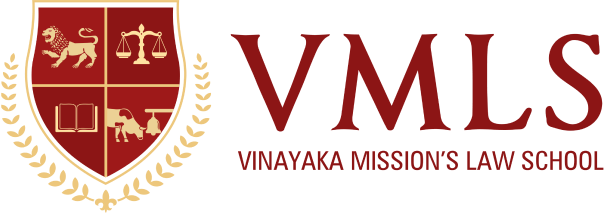




In commemoration of Constitutional Day, VMLS Global Tamil Law Center (GTLC) organized a legal literacy camp, aligning with the vision of Dr. B.R. Ambedkar to transform political democracy into social democracy. This report outlines the event’s objectives, activities, and the impact on the Irular Tribes community.
The primary objective of the camp was to empower the Irular Tribes community through education, focusing on the importance of education, creating awareness about the POCSO Act, and enlightening them about the detrimental effects of early child marriage.
On November 18th, the “Global Tamil Law Center” orchestrated a legal literacy camp for the Irular Tribes, addressing crucial issues such as the significance of education, the fundamentals of the POCSO Act, and the perils of early child marriage.
Vinayaka Mission’s Law School students played a pivotal role in educating the Irular community. They conducted informative sessions on the importance of
education, the key provisions of the POCSO Act, and the negative consequences associated with early child marriage. Utilizing innovative gameplay methods, the students effectively engaged both children and parents. The success of the event was palpable in the positive response from the community, reflected in the smiles on the faces of the children and their parents.
The success of the event was made possible through the dedicated efforts of our faculty coordinator, Dr. Fowmina, whose instrumental role significantly contributed to the event’s success. Special thanks were extended to Mr. Saravanan Ravi for his unwavering support and active presence throughout the camp. The constant support, guidance, and motivation from our Dean, Dr. Ananth Padmanaban, were invaluable.
Vinayaka Mission’s Law School, inspired by Mahatma Gandhi’s words, “Be the change you want to see in the world,” has taken a significant step towards initiating positive change. The legal literacy camp not only educated the Irular community but also embodied the institution’s commitment to building a society founded on principles of liberty, equality, and fraternity.







In commemoration of Constitutional Day, VMLS Global Tamil Law Center (GTLC) organized a legal literacy camp, aligning with the vision of Dr. B.R. Ambedkar to transform political democracy into social democracy. This report outlines the event’s objectives, activities, and the impact on the Irular Tribes community.
The primary objective of the camp was to empower the Irular Tribes community through education, focusing on the importance of education, creating awareness about the POCSO Act, and enlightening them about the detrimental effects of early child marriage.
On November 18th, the “Global Tamil Law Center” orchestrated a legal literacy camp for the Irular Tribes, addressing crucial issues such as the significance of education, the fundamentals of the POCSO Act, and the perils of early child marriage.
Vinayaka Mission’s Law School students played a pivotal role in educating the Irular community. They conducted informative sessions on the importance of
education, the key provisions of the POCSO Act, and the negative consequences associated with early child marriage. Utilizing innovative gameplay methods, the students effectively engaged both children and parents. The success of the event was palpable in the positive response from the community, reflected in the smiles on the faces of the children and their parents.
The success of the event was made possible through the dedicated efforts of our faculty coordinator, Dr. Fowmina, whose instrumental role significantly contributed to the event’s success. Special thanks were extended to Mr. Saravanan Ravi for his unwavering support and active presence throughout the camp. The constant support, guidance, and motivation from our Dean, Dr. Ananth Padmanaban, were invaluable.
Vinayaka Mission’s Law School, inspired by Mahatma Gandhi’s words, “Be the change you want to see in the world,” has taken a significant step towards initiating positive change. The legal literacy camp not only educated the Irular community but also embodied the institution’s commitment to building a society founded on principles of liberty, equality, and fraternity.



